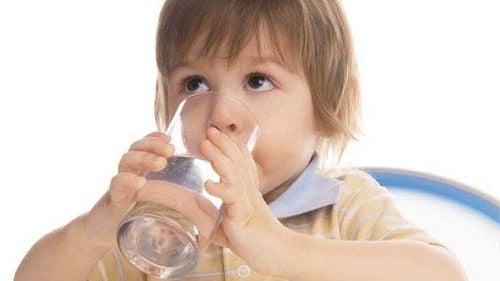This is an automatically translated article.
The article is professionally consulted by Master, Doctor Nguyen Minh Tuan - Pediatrician - Department of Pediatrics - Neonatology - Vinmec Danang International General Hospital.Your 48-week-old baby can start to walk, so make sure your baby is always in a really safe environment to grow. You should follow the child care instructions to keep the child safe and should not leave the child unattended.
1. The development of a 48-week-old baby
At this age, the child's average height and weight is 9 kg and height is 75 cm.At 48 weeks, babies are confident to walk around the house, know how to cling to things for support and their first independent steps won't be long (if they can't walk yet). ).
Children's brains are also developing rapidly at the present time. Some children are able to do many things on their own, like brushing their own teeth, although they may not be completely clean. Please check again each time after the child finishes brushing their teeth (for example, there is still foam on the edge of the toothpaste, or the brush has not been rinsed, the cup has not been washed... children will observe and draw their own experiences in these areas). next time).
Here are some important 48-week-old baby milestones that you can track:
Baby can stand on his own without support Baby can drink from a cup on his own Baby can say two or three words difference Children can roll the ball on their own without anyone's help Tends to prefer playing with friends and groups rather than playing alone.

Trẻ 48 tuần tuổi có thể tự uống nước bằng cốc
2. Nutrition of 48 weeks old baby
At the age of 6 months, children should start eating solid foods. For children learning to eat solids, the quantity of weaning meals will depend on the condition of each child. However, the mother still has to make sure to provide an adequate amount of milk daily for the baby. Mother can breastfeed 3-4 times/day in combination with 1-2 meals of powdered porridge/day and then can gradually increase the number of meals when the child is nearly 1 year old.In order for the child to get used to the weaning diet, the mother should first let the child learn to eat solid foods with powder, one cup of powdered powder a day, stirring loosely, so that the child's intestines can adapt and digest starch. Then let the child gradually get used to the solid food powder from liquid to denser form. Make sure each child's meal contains all of the following 4 food groups:

Sử dụng dầu thực vật rất tốt cho sự phát triển của não bộ của trẻ
3. Some tips for taking care of a 48-week-old baby

Không nên quát mắng trước mặt trẻ,trẻ có thể bắt chước rất nhanh
Encourage your child to walk by standing in front of him and using your hands to hold his or her hands, so he can walk easily with your support.
At this age children can imitate very quickly. Therefore, you should not swear or yell at others in front of your child, the child may imitate you.
Don't use the word "no" too much. The word "no" should only be used for something really dangerous a child might try to do, like touching an electrical outlet or walking near stairs.
If the child refuses to eat, instead of forcing the child to eat, parents should let the child eat with a spoon. This will help your child practice scooping food into his mouth.
Let your child try to join a playgroup of the same age to help them develop their communication ability, make them more courageous and also help them burn excess energy.
Regularly check the height and weight to monitor the child's development.
At this point, your child also needs the full booster vaccinations according to the immunization schedule. Based on your doctor's recommendations, your child may also need a flu shot.
Children need to provide enough elemental zinc/day for them to eat well, reach the correct height and weight and exceed the standard. Zinc plays a role in affecting most biological processes taking place in the body, especially the breakdown of nucleic acids, proteins... Organs in the body when zinc deficiency can lead to a There are a number of diseases such as neurological disorders, irritability, etc. Therefore, parents need to learn about the role of zinc and guide them to appropriate zinc supplements for their children.
In addition to zinc, parents also need to supplement their children with other important vitamins and minerals such as lysine, chromium, B vitamins,... errands.
Please regularly visit Vinmec.com website and update useful information to take care of your baby and family.
References: parents.com, mamanatural.com, parenting.firstcry.com














